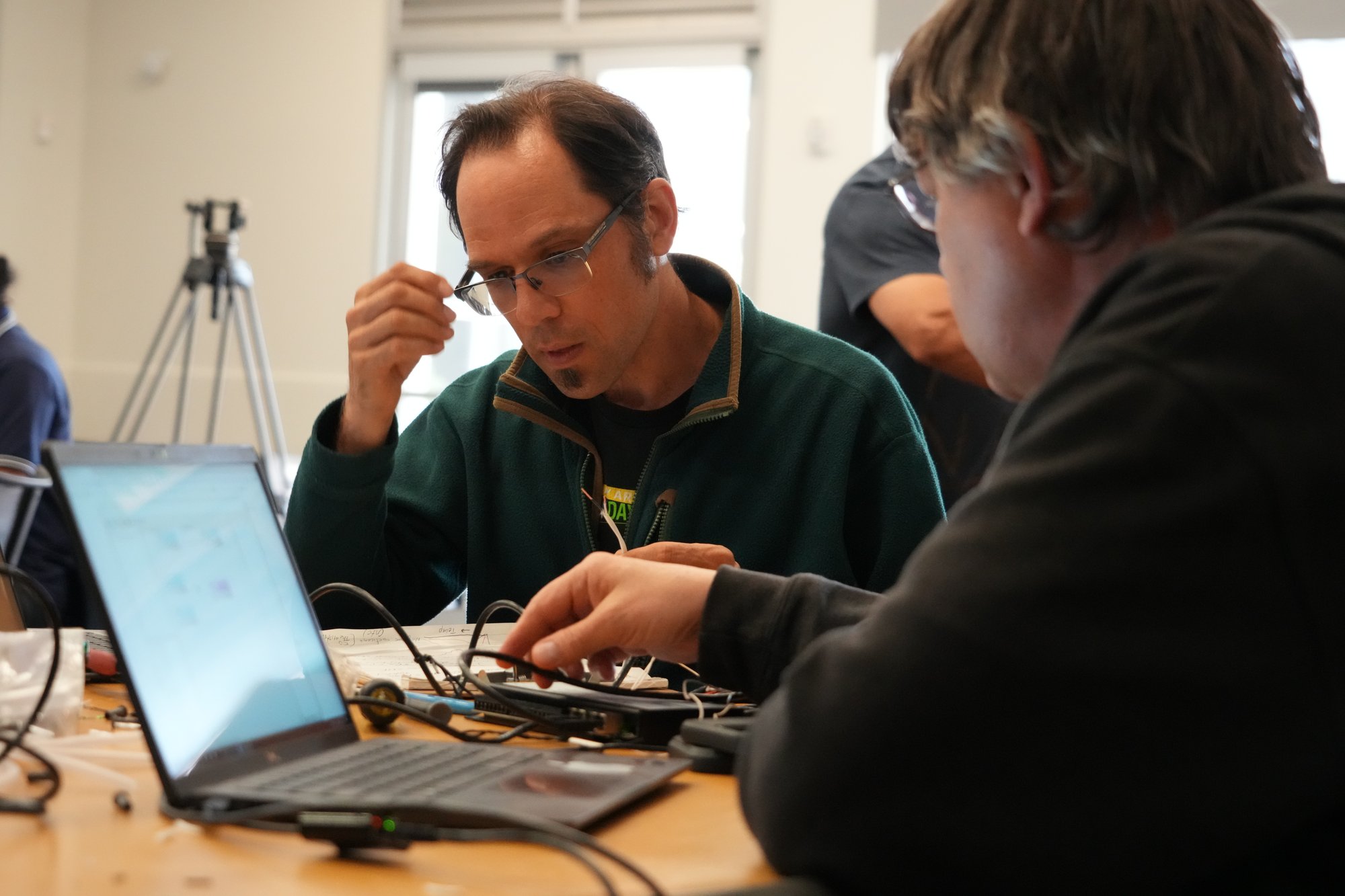Making use of the Building Automation System for Improved Operations and Energy Efficiency
Online Lab-Based Training
Join us online for an interactive, hands-on training program on Building Automation Systems (BAS). Learn how to apply building control systems to enhance energy efficiency, ensure safety, and improve the learning environment. This immersive program explores the integration of smart control technologies and advanced techniques to improve building operations, save energy, and enhance occupant experience. Working with expert instructors, participants will use a simulated BAS lab environment developed with Lawrence Berkeley National Lab(LBNL). Participants will gain practical skills using BAS tools and capabilities to analyze building data, troubleshoot and optimize building systems, and improve building operations. Participants will also gain valuable insights into emerging industry trends affecting energy load management, pricing, and grid interaction. Don't miss this opportunity to improve healthy and efficient building operations.



Featured Sessions
Data Analysis, Advanced Head-End Functionality
Training Date: Apr 12, 2024
Empowering the Future: Exploring Grid-Interactive Efficient Buildings at UC Berkeley FLEXLAB
In the ever-evolving landscape of sustainable architecture and energy efficiency, UC Berkeley's...
Meet our speakers

Since 2017, Robert has taught in Metropolitan Community College’s HVACR department and served as Program Coordinator for 4 years. His background in both computer science and energy management helped to inform MCC’s building automation-related project titled AUTOMATE! (funded by National Science Foundation). Prior to this, he served as the college’s Energy Management Systems Coordinator and worked as both a Systems Programmer and Application Technician.

MATC
Mr. Wilinski has had a career of working on energy management and facilities operations, including as a consulting engineer and educator specializing in facilities and energy management. At Milwaukee Area Technical College (MATC) Mr. Wilinski has developed over 20 courses and currently teaches in the Automated Building Systems program, which includes controls, M&V, Energy Auditing, and Commissioning. In addition to teaching at MATC, he works on an NSF ATE grant, the BEST Center, and still does work as a consultant for his firm, Wilinski Associates Inc

Peter Crabtree is the PI for the NSF ATE Building Efficiency for a Sustainable Tomorrow (BEST) Center now based at the California Institute of Energy and Environment (CIEE) and the Center for Information Technology in the Interest of Society (CITRIS) at UC Berkeley. After 17 years as the Dean of Instruction for Career Education at Laney College, Mr. Crabtree joins CIEE as a Visiting Project Scientist. The BEST Center provides resources and professional development for college faculty to support the education of the technical workforce in HVAC, Building Automation Systems, and Energy Management and Efficiency. BEST is completing development of a national certification for high performance building technicians, benchmarking industry-validated knowledge and skills standards in the sector.
With 35+ years of experience in workforce development and community engagement, Mr. Crabtree has directed numerous workforce and research projects including 18 years as an NSF PI with BEST Center and its predecessor projects as well as PI or Director for projects for the Department of Energy, the Department of Labor, the California Employment Development Department, the California Community Colleges, the California Workforce Development Board, the Bechtel Foundation, and the Microsoft Corporation.
He has an MA with an emphasis in Environmental Policy and political economics from UC Riverside. He was a Lincoln-Juarez Graduate Fellow at the Universidad Nacionál Autónoma de México.
This comprehensive online training course is designed to equip facility managers, engineers, and energy professionals with a robust understanding of energy management and Building Automation Systems (BAS). Through a blend of theory, practical exercises, and interactive labs, participants will gain the skills to optimize energy use and effectively manage modern BAS installations.
Agenda:
1. Program Overview & Controls Basics (4/25/25)
-
Energy efficiency principles
-
Sensors, actuators, inputs/outputs
-
Mechanical & control systems architectures
-
Intro to virtual building platform
2. Overrides: Intro & Lab (5/2/25)
-
Sequences of operation
-
0verrides, their causes & energy use impact
-
Lab: Finding & removing overrides
3. Schedules, Alarms & Lab (5/9/25)
-
Schedules, energy use impact & optimization
-
Alarms & improving their usage
-
Lab: Optimizing schedules & configuring alarms
4. Re-sets & Lab (5/16/25)
-
Re-set schedules, energy use & optimization
-
Lab: Enabling re-set schedules
5. Energy Calculations, Lab & Training Closeout (5/23/25)
-
Lab: Data collection
-
How to read energy data and use spreadsheets
-
Lab: Calculating energy savings
-
Energy intensity
